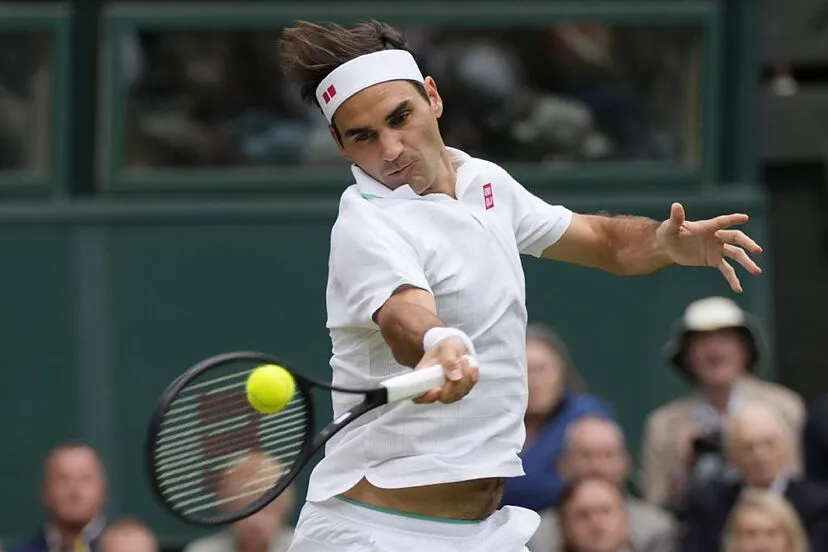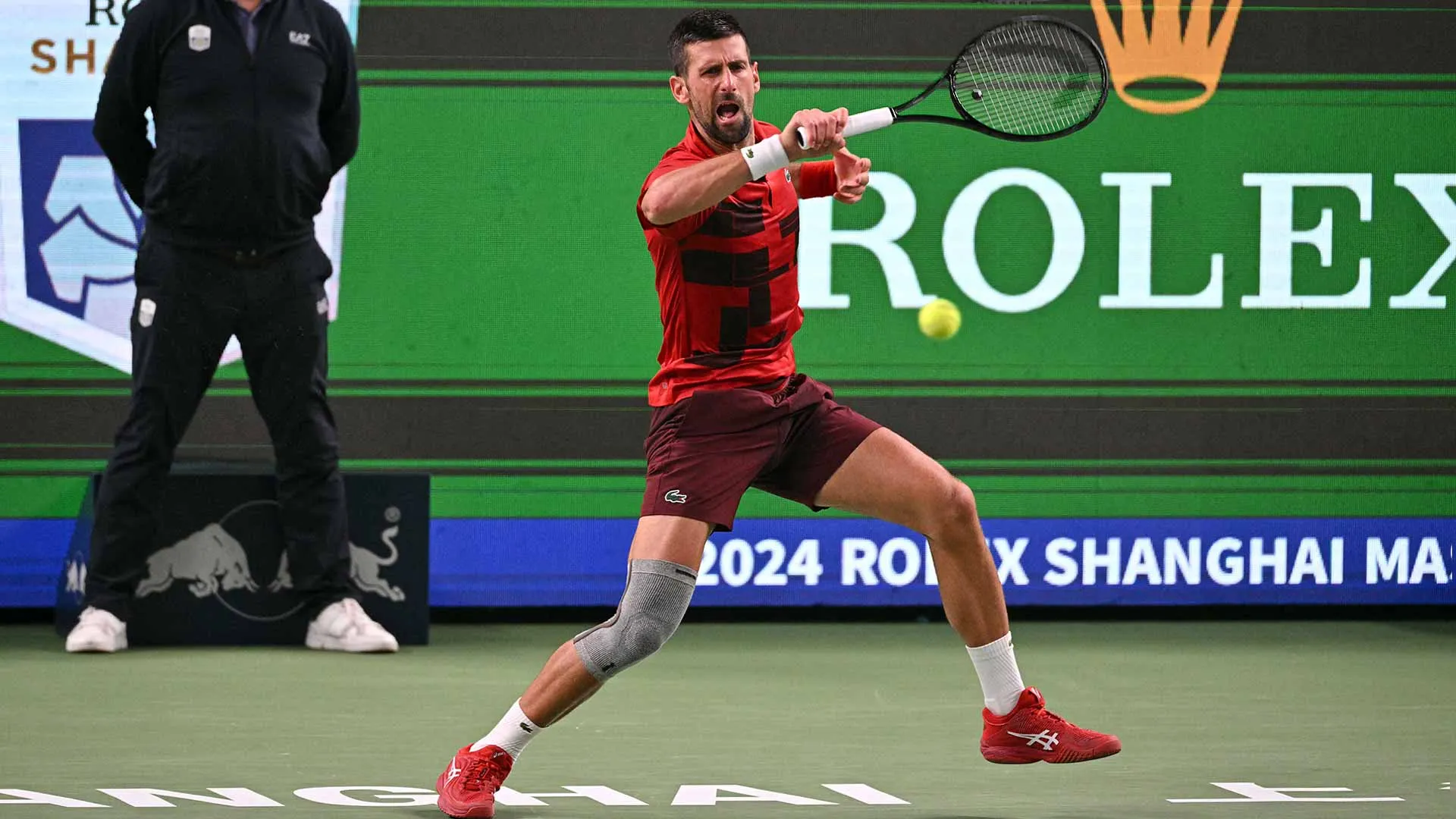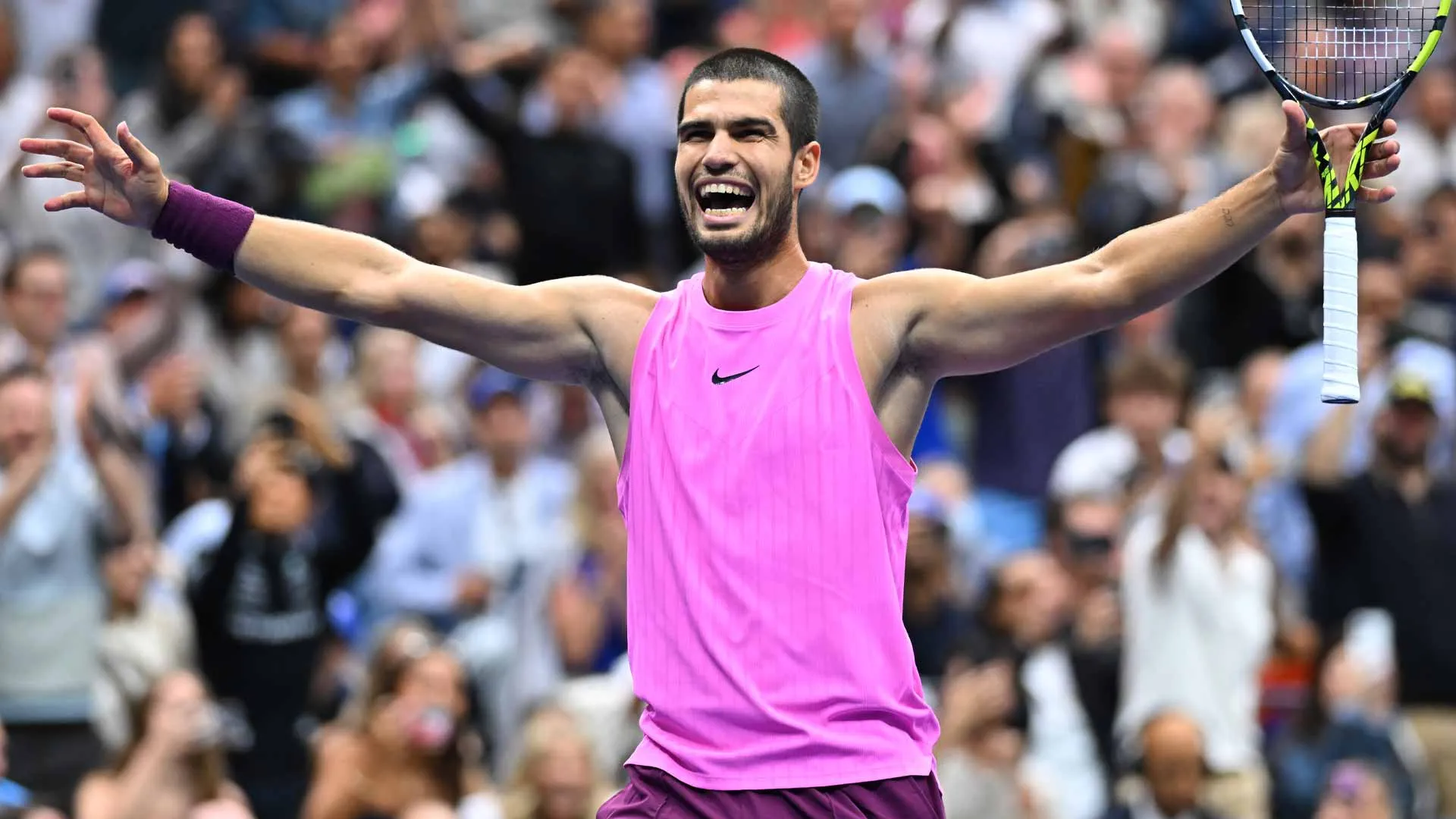
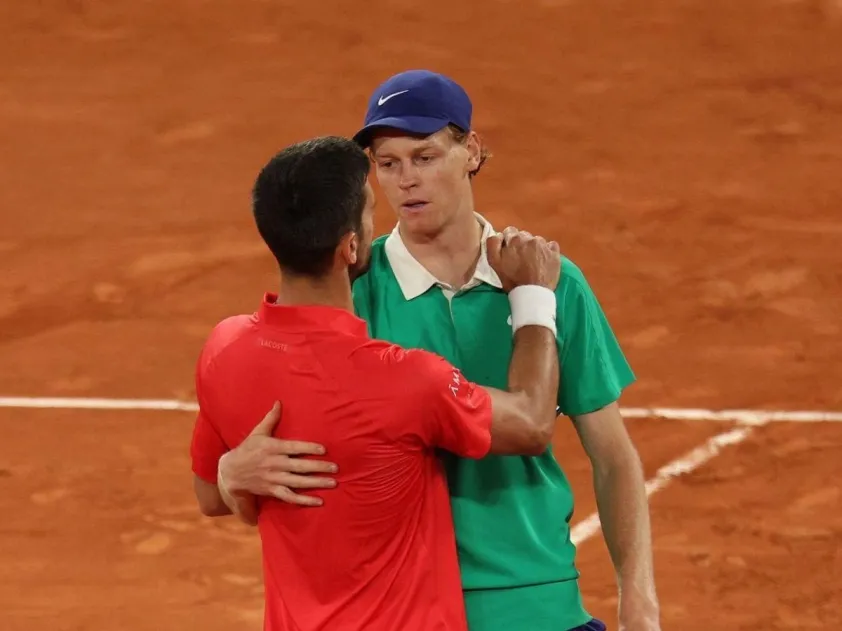
No One Knew: How Djokovic Quietly Helped Sinner Become a Star
In a sport as fiercely competitive and high-profile as tennis, it’s rare to witness a top-tier athlete giving quiet support to a rising rival without publicizing it. But that’s exactly what happened between Novak Djokovic, the 24-time Grand Slam champion, and Jannik Sinner, one of the most exciting talents of the next generation. Unknown to many, the Serb quietly mentored the Italian prodigy in crucial moments, helping him mature from a promising contender to a legitimate star on the ATP tour.
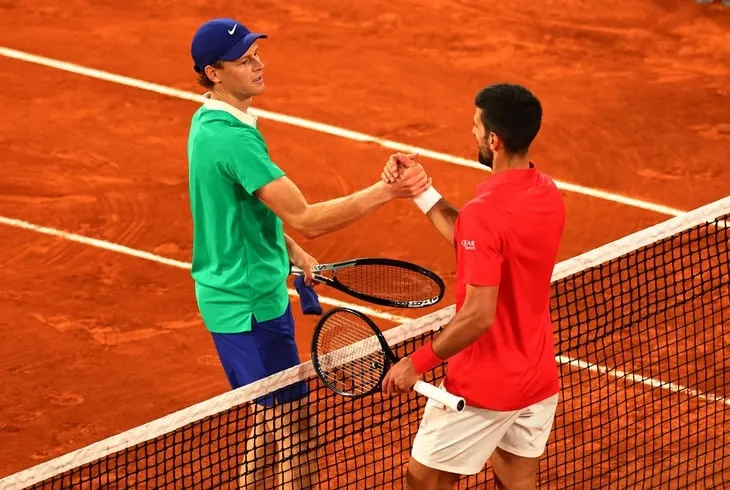
This is the untold story—one that reveals a softer, wiser side of Djokovic, and shows how subtle gestures, brief conversations, and private encouragements helped Sinner unlock his true potential.
The Meeting Point: When Paths First Crossed
The first time Jannik Sinner and Novak Djokovic faced each other professionally was at the Monte Carlo Masters in 2021. Although Djokovic won handily, he later remarked in a post-match interview: “He’s got the calmness, the game, and the mindset to go very far.” At the time, that comment seemed like typical praise from a veteran to a rising star. But behind the scenes, it marked the beginning of a unique relationship—one built not on headlines, but on humility and mutual respect.
While most fans focused on Sinner’s technique or fitness, Djokovic saw something deeper. He saw a mirror image of his own younger self—a player hungry to win, but uncertain how to navigate the psychological warfare of top-level tennis.
Quiet Words, Powerful Impact
According to sources close to Sinner’s camp, Djokovic privately reached out to the Italian after their match, offering not coaching, but guidance. He spoke about match composure, about how to handle hostile crowds, how to play the long game in Grand Slam tournaments, and, most importantly, how to build a winning mentality without losing your soul.
There was no media present. No coaches. No sponsorship tie-in. Just two athletes, one seasoned and the other rising, exchanging knowledge in hushed tones near the players’ lounge.
“He didn’t tell me how to hit a forehand,” Sinner reportedly told a friend later. “He told me how to survive when I’m two sets down and the whole stadium wants me to lose.”
That statement would prove prophetic.
Wimbledon 2022: A Lesson in Defeat
One of the most memorable chapters of their growing connection unfolded at Wimbledon 2022, when Sinner found himself two sets up against Djokovic in the quarterfinal. It looked like the young Italian was about to pull off a career-defining upset.
But what happened next was not just a comeback—it was a masterclass in mental strength from Djokovic. He didn’t panic. He adjusted, fought, and ultimately defeated Sinner in five sets. As Sinner left the court in defeat, visibly devastated, Djokovic walked beside him and whispered something that cameras couldn’t pick up. It wasn’t trash talk. It wasn’t pity. It was, according to insiders, a reminder to stay patient, to use the pain.
And Sinner did.
That match became a turning point. Instead of breaking him, it hardened him. He started working more on his physical conditioning, focused more during crucial points, and grew in tactical maturity. The seeds Djokovic planted in that loss began to grow.
Beyond Rivalry: The Human Side of Djokovic
In a sport often defined by egos, Djokovic has at times been cast as the villain—especially when compared to the global adoration of Federer or Nadal. But moments like these offer a deeper, more nuanced portrait. What he did for Sinner wasn’t for show, and that’s what makes it powerful.
Djokovic has always believed in passing on knowledge, especially to players who show humility and hunger. “I see myself in Jannik,” he once said in a Serbian interview. “He listens. He doesn’t talk too much. That’s how you learn.”
While most fans only see the roaring Djokovic, fist-pumping and snarling on court, those close to the tour know that he’s often the first to offer advice to juniors and emerging players—privately, and without fanfare. With Sinner, the connection was especially strong, because Djokovic saw the potential for greatness, not just talent.
The Rise of Sinner: Not Just Natural Talent
In the months following that Wimbledon clash, Sinner’s game elevated dramatically. His serve became more reliable. His movement more explosive. But more than anything, his confidence skyrocketed. In interviews, he started sounding more assertive. In practice sessions, he was more focused. And in matches, he showed grit under pressure—the kind Djokovic is famous for.
When asked about his improvement, Sinner often gave credit to his team, his coach, and his own dedication. But in private conversations, he never forgot the quiet influence of Djokovic. He once told a close journalist off the record: “Novak taught me something no one else could: how to trust myself when it matters most.”
In sports, technical help is easy to find. Mental mastery? That’s where champions are born.
2023: The Tables Begin to Turn
As the 2023 season rolled in, Sinner began collecting key wins. He reached the finals in multiple tournaments and, more importantly, started to beat top-10 players consistently. One of the most emotional moments of the year came when he defeated Djokovic himself at the ATP Finals in Turin.
It wasn’t just a match—it was a full-circle moment.
After the handshake at the net, Djokovic smiled and said, “That’s the version I always knew you had in you.” It wasn’t bitterness. It was pride.
For fans watching around the world, it was a passing of the torch—not forced, but earned.
Fans React: “Why Didn’t We Know This Before?”
As stories of Djokovic’s mentorship started to leak out through documentaries, podcasts, and whispers on tennis forums, fans began to ask the same question: Why wasn’t this public?
The answer lies in the character of both men. Djokovic didn’t want credit, and Sinner didn’t want to lean on someone else’s name. Their bond was rooted in trust, not PR. But now that the story is beginning to emerge, it’s changing perceptions.
For Djokovic, it’s a reminder that his legacy isn’t just in titles—it’s in influence. For Sinner, it’s a testament to his growth and humility. And for tennis, it’s a rare glimpse at intergenerational respect, something sorely needed in today’s rivalry-obsessed culture.
The Legacy Djokovic Leaves Behind
Even as Djokovic continues to compete at the highest level, his off-court contributions are becoming more visible. From mentoring younger players to advocating for a stronger players’ association, his role in shaping tennis’s future is undeniable.
With Jannik Sinner, the impact is personal and profound. And now, as Sinner starts beating the best and becoming a genuine contender at every Slam, the fingerprints of Djokovic’s wisdom are clear. He didn’t do it for applause.
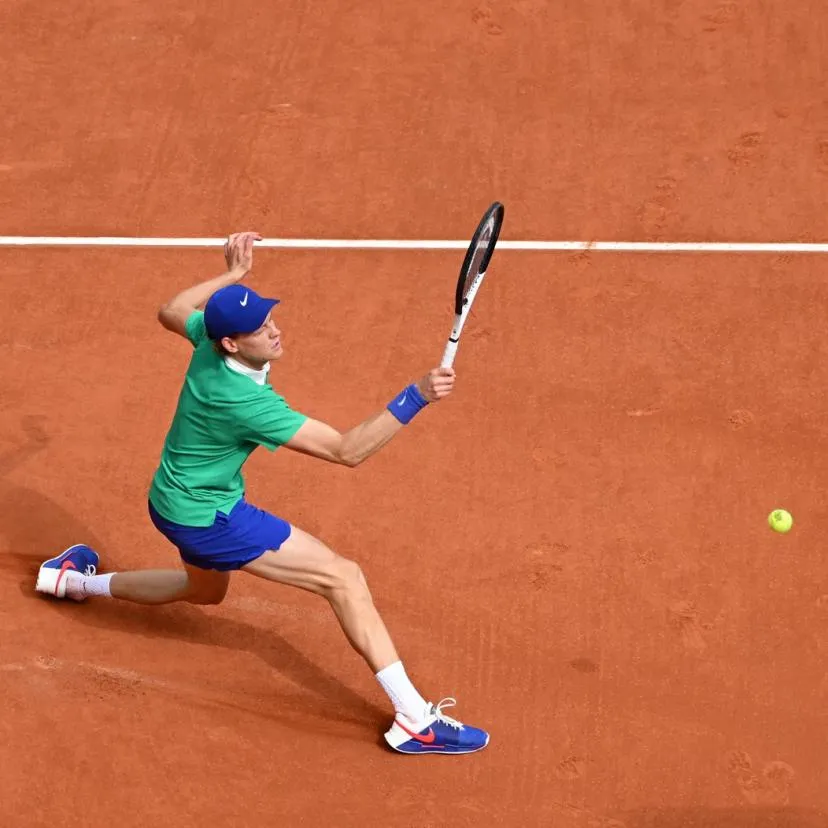
He did it because he remembers what it was like to be young, hungry, and uncertain—and he knows that sometimes, the greatest gift a champion can give is simply believing in someone else.
Final Thoughts: Greatness Isn’t Just About Winning
Jannik Sinner is now a star in his own right, and his journey has just begun. But as his career unfolds, the foundation built by quiet mentorship, fierce competition, and authentic respect will carry him further than talent alone ever could.
And Novak Djokovic? In helping Sinner, he didn’t lose anything. In fact, he added another layer to a legacy already packed with records. Because true greatness isn’t just about how many trophies you lift—it’s also about who you help rise along the way.








